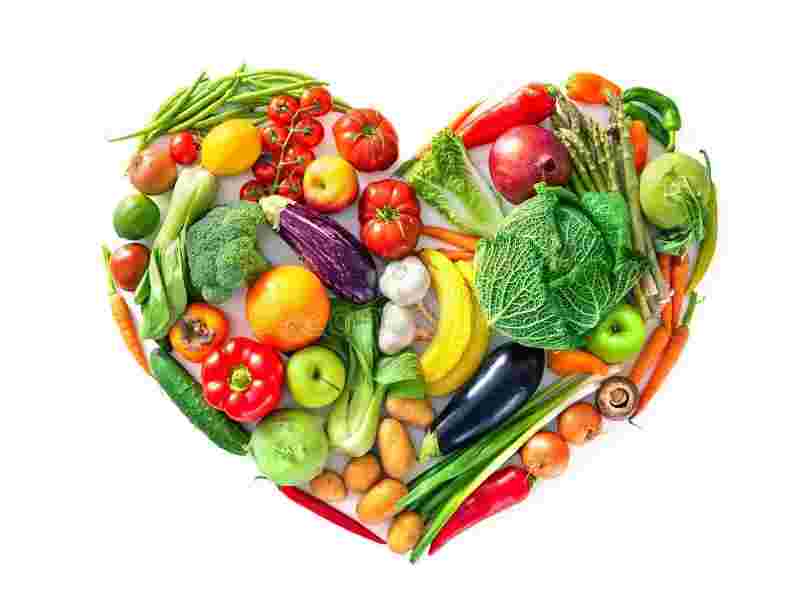To Maintain Good Heart Health, Here Are Few Vitamins To Keep Your Arteries Clean

To Maintain Good Heart Health, Here Are Few Vitamins To Keep Your Arteries Clean
Embracing a colourful diet is key. Fruits and vegetables of various hues not only add visual appeal to meals but also provide essential nutrients, particularly heart-healthy bioflavonoids.
28 May 2024
By Sukhmani Kooner
The circulatory system comprises a complex network of veins and arteries, spanning nearly 100,000 miles if extracted from the body. These vessels play a crucial role in transporting blood between the heart and body tissues, influencing overall health significantly. Given their importance, it’s essential to take measures to maintain optimal vein health for a fulfilling and prolonged life.
Maintaining healthy circulation is crucial for overall well-being, and diet plays a pivotal role in achieving this goal. By making mindful choices in what we consume, we can lay a strong foundation for optimal blood flow and vein health.
Embracing a colourful diet is key. Fruits and vegetables of various hues not only add visual appeal to meals but also provide essential nutrients, particularly heart-healthy bioflavonoids. These phytonutrients, responsible for the vibrant colours of many fruits and veggies, contribute to improved circulation. Rutin, a specific type of bioflavonoid found in foods like apples and citrus fruits, has been traditionally used to support circulation. Leafy greens, such as spinach, are rich in rutin and omega-3 fatty acids, further promoting vein strength and acting as potent antioxidants against free radicals.
Spices offer both flavour and health benefits. Turmeric, a staple in Indian cuisine, boasts anti-inflammatory properties that help prevent artery hardening. Cayenne pepper, another spice, is believed to stimulate circulation, aiding in maintaining healthy blood flow.
Increasing fibre intake is another dietary strategy for promoting vein and artery health. Whole grains and fibre-rich fruits and vegetables not only improve cholesterol levels but also support overall cardiovascular function.
Limiting sodium intake is crucial for vein health. Processed and packaged foods often contain high levels of sodium, which can strain the cardiovascular system. Opting for fresh, homemade meals and carefully reading food labels to identify sodium content are effective ways to reduce intake. Choosing low-sodium options whenever possible mitigates the risk of vein damage and heart-related complications.
Hydration is fundamental for circulation. Water comprises a significant portion of our blood volume, ensuring proper blood viscosity and flow. Aim for adequate hydration by consuming at least eight glasses of water daily to support optimal cardiovascular function.
1. Vitamin C: It plays a crucial role in maintaining arterial health by promoting the production of collagen, a key component of blood vessel walls. Adequate intake of vitamin C helps prevent arterial plaque buildup, reducing the risk of atherosclerosis and enhancing blood flow, thereby supporting overall cardiovascular health.
2. Vitamin D: Its deficiency is linked to arterial health issues such as hypertension and coronary artery disease. Adequate vitamin D levels are crucial for preventing peripheral arterial disease (PAD), according to research. Ensuring sufficient vitamin D intake supports arterial function, reducing the risk of cardiovascular complications and promoting overall heart health.
3. Vitamin E: It shields arterial cell linings from oxidative harm, reducing the risk of atherosclerosis, the hardening of arteries. By combating oxidative stress, it safeguards arterial health, preventing the progression of cardiovascular complications and promoting overall cardiovascular well-being.
4. Vitamin K: It triggers proteins that guide calcium to bones, diverting it from arteries to enhance bone health. This process prevents calcium accumulation in arteries, reducing the risk of arterial calcification and maintaining cardiovascular health. Adequate vitamin K intake ensures optimal bone strength and supports overall cardiovascular well-being.
5. B Vitamins: These play a crucial role in lowering blood homocysteine levels, which, when elevated, pose a risk to arterial health by promoting plaque formation and artery damage. By reducing homocysteine, B Vitamins help maintain arterial integrity, minimising the risk of cardiovascular complications and supporting overall heart health.
Prioritising a nutrient-rich, colourful diet, incorporating beneficial spices, increasing fibre intake, moderating sodium consumption and staying hydrated are essential steps towards promoting vein health and overall circulation. By making informed dietary choices, individuals can optimise their cardiovascular well-being and enhance their quality of life.










